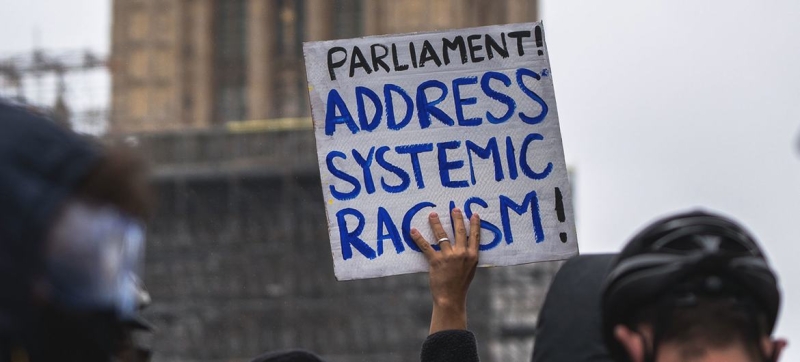
Archive photo: Black Lives Matter protest in central London. Volker Türk: Racism shaped every aspect of life for people of African descent Human Rights
It is now imperative to confront and address the institutional, structural and historical causes of systemic racism, which also means addressing the legacy of colonialism. This is what High Commissioner for Human Rights Volker Türk said at the 57th session of the Human Rights Council on Wednesday.
Racism, racial discrimination, xenophobia and intolerance continue to plague the world, he said. For Africans and people of African descent, it affects every aspect of daily life.
“Africans and people of African descent are not a homogeneous group,” stressed Volker Türk. “Their identities, experiences and needs are multifaceted. They depend on the context and change over time. An African or a person of African descent may be a child, a woman, a migrant, a member of a sexual minority, have a disability, live in poverty – or a combination of these factors.”
Examples of racism and racial profiling
All these diverse aspects exacerbate the discrimination faced by black people around the world, the High Commissioner noted. Across the Americas, women and girls of African descent complain of deep inequalities in access to sexual and reproductive health care, which in some countries leads to high maternal mortality rates and income inequality in maternal health care.
In Australia, young men of South Sudanese descent report racial profiling, racial abuse in public spaces, vilification in the media and accusations that they are part of an ethnic criminal organisation.
Brazil continues to have high levels of gender-based violence, including the killing of lesbian, bisexual, transgender and intersex people, particularly among women of African descent.
In Europe, Muslim women of African descent who wear religious dress have been subjected to verbal abuse and physical attacks.
Migrant women and girls of African descent are at particular risk of violence in Libya.
“We also see discrimination in interactions with law enforcement and the criminal justice system, – Volker Türk continued. – For example, young African men or men of African descent report higher rates of identity checks or police stops. The risk of torture or arbitrary detention is even higher when race intersects with other factors.”
Combatting Stereotypes
The High Commissioner called for a more active fight against racial and other social stereotypes, as well as an end to the practice of denying the existence of systemic racism.
Türk concluded his speech with a quote from Indian economist and philosopher Amartya Sen: “The hope for harmony in the modern world lies in a greater understanding of the pluralism of human identities.”
